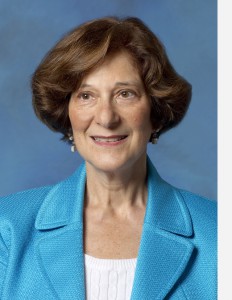
HSLS Director
bepstein@pitt.edu
In May, I was honored to become the 2017-18 president of the Medical Library Association (MLA), after serving the past year as president-elect. I have been an active member of MLA since the beginning of my career, and have served in many leadership roles. Participation in MLA has supported my growth as a health sciences librarian through the years, and has introduced me to a strong community of friends and colleagues from around the country and beyond.
MLA was founded in 1898, and is headquartered in Chicago. As an organization of more than 3,200 members, our vision is to “foster excellence in the professional practice and leadership of health sciences library and information professionals in order to enhance the quality of health care, education and research throughout the world.” Our members work in academic health centers, hospitals, colleges and universities, pharmaceutical companies and other commercial entities, healthcare associations, and health agencies at the federal, state, and local levels.
To carry out our mission, MLA sets the standards for professional competencies needed by health sciences librarians, and offers a strong professional development program of online and in-person courses, symposia, and workshops. Members can earn recognition for professional development through the Academy of Health Information Professionals (AHIP). Our annual meeting is in May, and usually attracts about 1,500 members and exhibitors. Various regional chapters also meet annually in the fall. We publish a quarterly peer-reviewed open access journal, JMLA, which is indexed in Medline and available on PubMed Central.
As one of my first presidential duties, I traveled to Dublin, Ireland, last month to represent MLA at the combined meeting of the 12th International Congress on Medical Librarianship and the European Association for Health Information and Libraries. One particularly interesting meeting for me was an opportunity for officers of health sciences library associations from Europe, Canada, Australia, Taiwan, Africa, and the U.S. to share ideas and challenges.
I’ve only described a sampling of MLA’s many programs and initiatives. To learn more about MLA, visit our web site at www.mlanet.org, or send me a note at bepstein@pitt.edu!